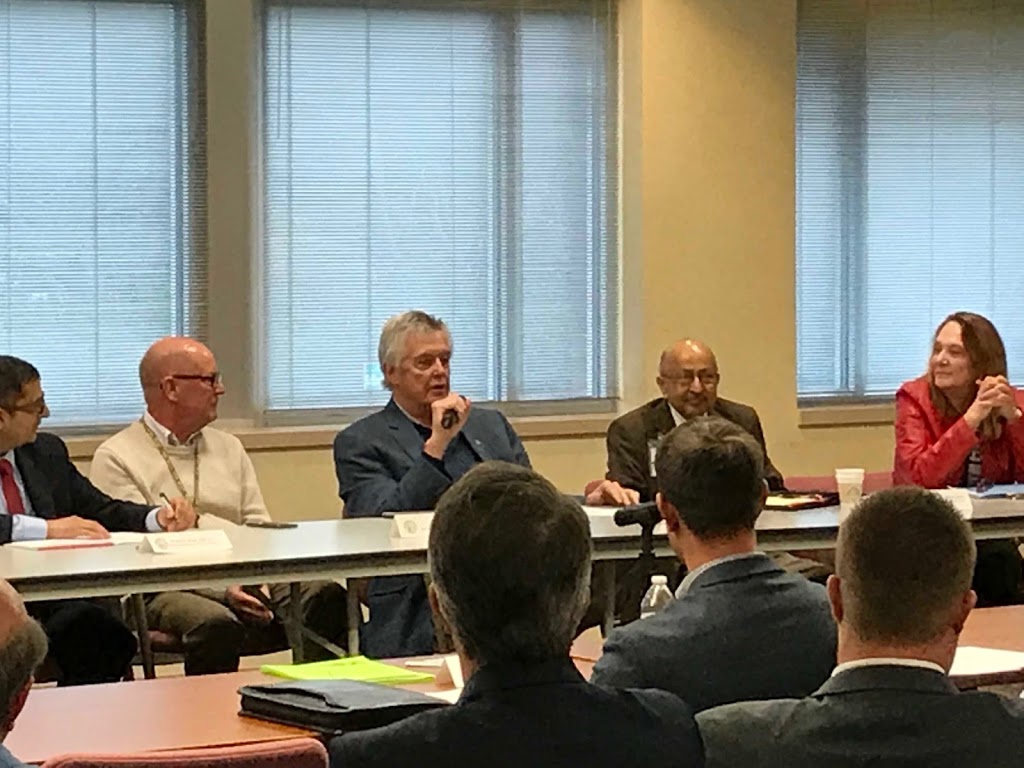State Representative Steve Reick (R- Woodstock) joined Lt. Governor Evelyn Sanguinetti, IL Department of Public Health Director Nirav Shah and a panel of experts on Thursday for a public hearing about the opioid crisis that claimed the lives of nearly 2,000 Illinoisans last year. The hearing, which is part of the State Opioid Prevention and Intervention Task Force’s listening tour, took place at the McHenry County Government Building in Woodstock.
“The opioid epidemic knows no neighborhood, no color, and no class,” said Sanguinetti. “It is not confined to alleys in urban settings, nor isolated in rural communities.”
Three panels of local individuals representing the health care industry, law enforcement and local responders, spoke to the panel and a crowded room of citizens who came to listen or testify. “The information shared at this meeting was extremely valuable,” said Reick. “The heartfelt testimony shared today helped to humanize the issue of opioid abuse in a way that simply can’t be accomplished through studying statistics.”
According to Reick, one of the most startling pieces of testimony shared on Thursday came from Sergeant Michael Muraski of the McHenry County Sheriff’s Office, who reported that whereas ten years ago opioid or heroin incidents represented only 5% to 10% of their caseload, today about 75% of the drug cases involve opioids or heroin. “That testimony really drives home the devastating affects these drugs are having on our communities and families,” Reick said.
Reick also pointed to personal testimony provided by Christopher Reed, a recovering opioid addict who, upon recovery, founded New Directions Addiction Recovery Services and The Other Side, a gathering place for recovering addicts which includes a “sober bar.”
The Woodstock opioid crisis hearing was the sixth field hearing held to gather information and build partnerships throughout Illinois. The State’s official Opioid Action Plan includes steps to reduce the anticipated number of opioid-related deaths by one-third over the next three years. The plan identifies three areas of focus: prevention, treatment/recovery, and response. Click here to access the plan.
